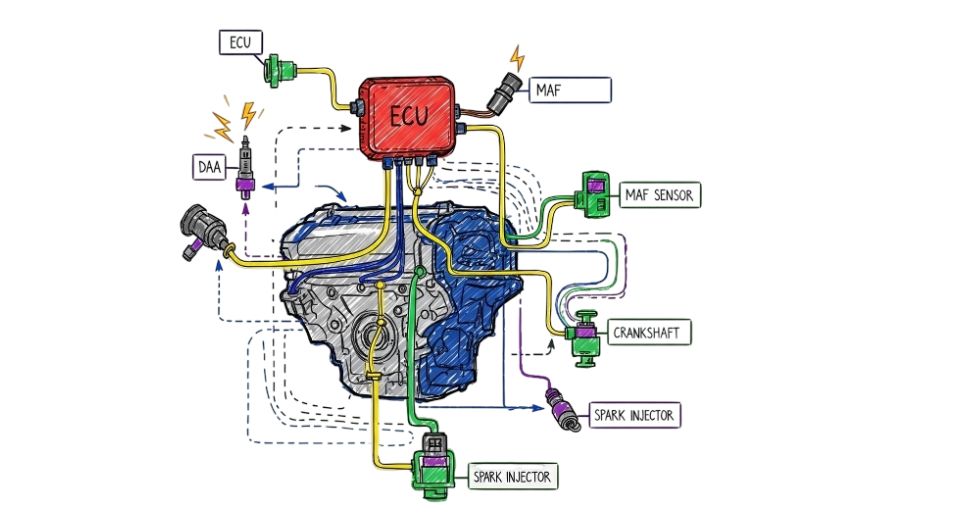
Aug 05, 2025

Metastat Insight most recent report is an in-depth exploration of the Global Automotive Engine Management System Market, describing how the industry is responding to the dominant dynamics. This business, at the very heart of modern car engineering, is going through dramatic change, supported by an interaction of forces not always directly apparent on the surface. From the advanced wiring of control units to the subtle modulation of fuel injection, the sophistication and range of engine management systems are increasingly becoming more sophisticated, affecting not only performance but also efficiency and environmental considerations. What is remarkable in the findings of this comprehensive report is the industry's shift towards integrated software and hardware solutions and the sophistication of such a move.
With manufacturers being required to conform to varied demands and performance requirements, engine management system design is undergoing a clear move away from traditional paradigms. The needs of manufacturers to lower emissions under more stringent targets while also enhancing drivability have paved the way for control modules to deliver more than simple rudimentary functionality. These systems are now needed to facilitate seamless coordination among a variety of subsystems, incorporating advanced sensing technology and intelligent learning. The motivation for this shift is not technology for technology's sake but greater awareness of the diversity in regional requirements. In different geographic areas, automobile performance requirements and exhaust compliance standards differ as much as do the roads themselves.
Therefore, the Global Automotive Engine Management System Market is very fragmented, and local innovation is responsible for driving global trends by far. There are some places where fuel economy and low emissions are prioritized, while others are focused on torque and durability. These dissimilarities are influencing the way engine control strategies are calibrated and associated electronics are designed. Specifically, the supply chain dynamics influencing the Global Automotive Engine Management System Market have taken on a greater significance. The traditional relationship between supplier and OEM has grown more symbiotic, exemplified by co-development and long-term partnership.
Engine management today is as much a question of software integration and algorithmic refinement as it is a question of physical components. Tier-one suppliers are no longer just supplying generic control units; instead, they are working with original equipment manufacturers right from the early stages of engine design. This new way is revolutionizing the dynamics of value sharing across the car development process.
Metastat Insight study delves deeply into the subtleties of these interactions, offering a story that is far beyond mere growth patterns. The report emphasizes the interdependence of technology development, consumer demand, and regulation. For instance, as consumer consciousness about fuel efficiency and the environment grows, so does the demand for cars to deliver intelligent, responsive engine power.
Engine management systems, therefore, have to interpret vast volumes of real-time data to respond instantly to make everything from acceleration to emissions control. Within this rapidly changing world, R&D activities are being focused on solutions that are flexible. One extremely forward-thinking avenue is incorporating machine learning into control units. In opening the door for systems to be customizable to the driver's behaviour and weather conditions, these technologies are changing the overall mindset of what is possible with engine management. Rather than relying on hard maps and fixed rules, the newest systems are written to learn, providing a more advanced driving experience while meeting stringent efficiency targets.
What one gets from Metastat Insight's report is a scene of an industry that, even under massive external pressures, remains to be innovative in meeting its objectives. It is not a supply-and-demand economy, but rather one based on a sophisticated appreciation of performance, sustainability, and regionalism. There has been an ongoing dialogue between hardware and software sophistication at the heart of this evolution, nowhere more so than in manufacturers' total re-design of the very fundamentals of combustion and control. As powertrain designs are becoming increasingly diversified and hybridization is dominating, the Global Automotive Engine Management System Market is finding new horizons to explore. Internal combustion engines, despite increasing criticism, remain an integral part of the automotive environment in the majority of regions worldwide.
Here, the need for intelligent management solutions becomes all the more pressing. Rather than being displaced, engine management systems are now more advanced controllers of numerous propulsion units, including electric assist and regenerative systems. The broader implications of such advances go beyond their technical outcomes. They also have implications for brand differentiation and the customer's perception of car quality. An efficient, responsive, and slick-handling car often has its virtues to thank in terms of the intricacy of its engine management system something not necessarily consciously admired by the general consumer but certainly felt when driving.
Overall, the report released by Metastat Insight is a considered understanding of the Global Automotive Engine Management System Market that gives an up-close look at the market's current direction and the subtle powers shaping its future. It doesn't merely chart surface currents but instead a more profound understanding of the technological and collaborative changes that are shaping how automobiles operate today and tomorrow.
Drop us an email at:
Call us on:
+1 214 613 5758
+91 73850 57479